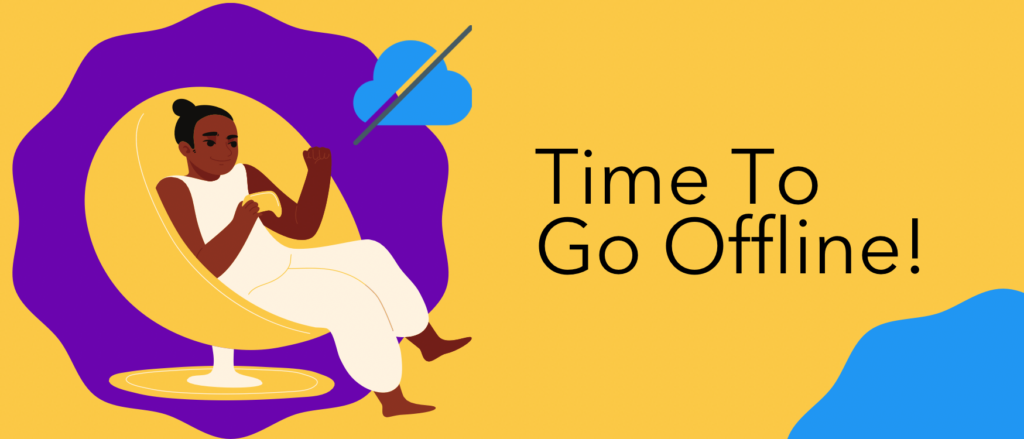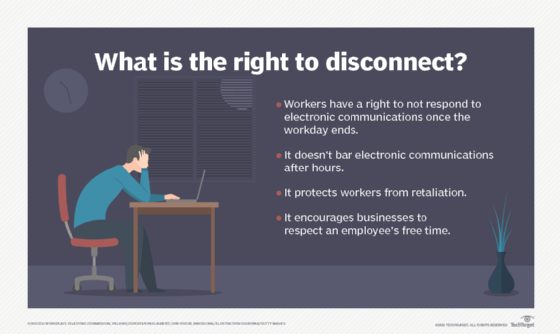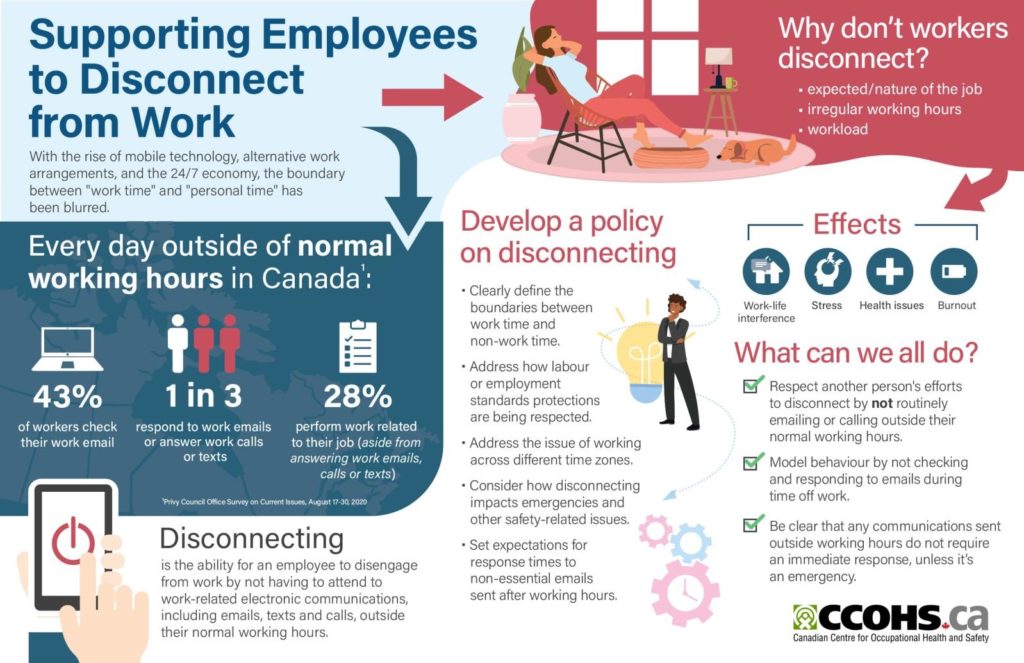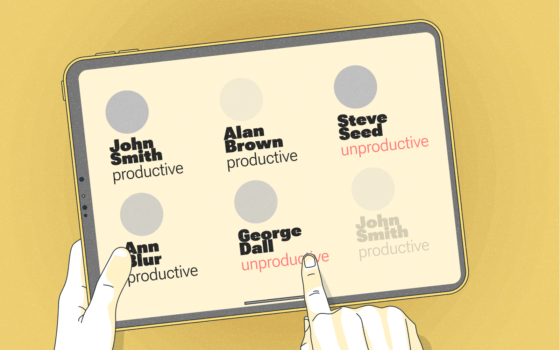How to Set Boundaries at Work for a Healthy Balance: Tips for Disconnecting After the Workday

In this fast-paced world, we are living in it can be tough to “unplug” ourselves. We are constantly bombarded with work emails, calls, and texts outside of the traditional workday! On top of that, as remote work has become more prevalent, it makes it even more difficult to set healthy boundaries at work/life. Sometimes, it’s just too hard to stay off, hence the need to set boundaries at work.
If you feel you are always working and you don’t know when to take a break, this blog post is for you! We will discuss why it’s important to disconnect from work and how you can set boundaries after work. So, if you’re looking for ways to practice healthy boundaries at work and avoid burnout – keep reading!
Did you know that the “right to disconnect” is actually a proposed human right? Yes, you read that right! Even though it may surprise you, the right to disconnect shares similarities with several preexisting human rights, such as the right to rest and leisure found in article 24 of the Universal Declaration of Human Rights (UDHR), as well as the right to private life, and the right to family life.
The term “right to disconnect” was first coined in France back in 2004. And, in 2017, the European Parliament recommended that all member states should adopt policies ensuring workers have the opportunity to disconnect from work outside of work hours.
So, what does this mean?
The Employee Right to Disconnect
Well, without paraphrasing, the European Union (EU) defines the right to disconnect as “a worker’s right to be able to disengage from work and refrain from engaging in work-related electronic communications, such as emails or other messages, during non-work hours.”

Back in 2013, France enacted a new labor law that “encourages businesses to find ways of avoiding intrusion on employees’ private lives by defining periods when devices can be switched off and no company emails will be sent. The aim is to improve working conditions but also to avoid legal disputes.”
This law which came into effect in 2017 requires companies with more than 50 employees to establish work hours and rules surrounding work-related communication outside of work hours. The goal of this legislation is to protect workers from the “always-on” culture, as well as from “burnout”, which is the state of physical or mental exhaustion that results from work-related stress.
In fact, according to the World Health Organization (WHO), burnout is now an official diagnosis!
Why Is It Important to Disconnect From Work?
First of all, we need to take a step back and rethink the way we work. In today’s society, work has become this never-ending series of work demands, new technologies, and the 24/7 global economy that has led us to the “always-on” culture. This work culture is one where we are expected to be available for work at all times, regardless of the time or day.
While this may seem great for employers, always being “on-call” can take a toll on our physical and mental health. In fact, research has shown that the “always-on” work culture can lead to several negative consequences, such as:
- work/life conflict
- reduced work satisfaction
- increased stress levels
- anxiety
- depression
- burnout
Let’s look at the benefits of disconnecting from work more closely!
Disconnecting from work can help improve your sleep quality
A study conducted by the Harvard Business Review found that workers who check work emails after hours reported poorer sleep quality. In fact, they found that for every extra email you read outside of work hours, your sleep quality decreases by about six percent!
This is true because when we cannot turn our heads off from work, it’s hard to relax and wind down before bed. If you have trouble sleeping, disconnecting from work may be a good solution!
Disconnecting from work can help reduce stress
We can all attest to the fact that work can be stressful. In fact, a survey conducted by the American Psychological Association and confirmed by the American Institute for Stress found that work was one of the top sources of stress for Americans.

Dealing with work-related stress can be tough, but one way to help reduce stress is by disconnecting from work. It’s always too easy to bring work home with us and never really escape the workday! This can lead to increased levels of stress that can have negative impacts on our physical and mental health.
Disconnecting from work can help improve your relationships
When we are constantly checking that Slack channel, it’s easy to let other aspects of our life, such as our relationships, suffer. In fact, a study found that work-related emails were associated with poorer relationship satisfaction.
This is likely because we are not present when we are with our loved ones if we are always thinking about work. If you want to improve your relationships, disconnecting from work may be a good solution!
When you disconnect from work, you can increase your productivity levels
It may seem counterintuitive, but disconnecting from work can actually help you be more productive when you are working. A study conducted by Stanford University found that workers who took regular breaks were more productive than those who didn’t.
The study found that workers who took breaks felt less tired and had a higher level of motivation. We know scheduling breaks may seem like a waste of time, but it can help you be more productive in the long run!
Sounds easy, right? Yet, if you are not in France, how can you set healthy work boundaries, especially if your employer doesn’t have a policy like this in place? Let’s find out!
How to Set Healthy Boundaries at Work: Tips for Disconnecting After the Workday

Assess Your Personal Boundaries First
Before you can set work boundaries, it’s important to understand your own personal boundaries. This includes understanding how much work you can handle and what makes you feel overwhelmed. Once you have a good understanding of your own limits, you can start setting boundaries with your employer or clients.
Active Communication
When you’re communicating your work boundaries, it’s important to be assertive but also polite. For example, you might say something like:
“I’m only available for work calls from Monday to Friday, during work hours.”
If you’re not comfortable communicating your work boundaries directly, you can also try setting them indirectly. For example, if you don’t want to work on weekends, you might say that you have plans every weekend and won’t be available for work.
Be Prepared to Negotiate
In some cases, your employer or clients might not be okay with the work boundaries you’ve set. If this happens, you’ll need to be prepared to negotiate.
For example, let’s say you’ve told your boss that you’re only available for work calls from Monday to Friday, during work hours. But your boss asks you to work on a Saturday. In this case, you’ll need to decide if you’re willing to work or not.
If you are willing to work, you can try negotiating for something in return. For example, you might ask to leave early on Friday or take a longer lunch break.
On the other hand, if you’re not willing to work, you’ll need to be firm and stand your ground. You can say something like, “I’m sorry, but I’m not available for work on Saturdays.”
Delegate Work
By delegating work, you can establish limits on what tasks you will complete and when you will complete them. Delegation also allows you to prioritize your time and energy, ensuring that you can focus on the tasks that are most important to you.
When delegating work, it is important to be clear about your expectations and to provide adequate instructions. Additionally, it is important to choose a person who is reliable and capable of completing the task.
Turn Off Work Notifications
To set healthy boundaries at work and personal life, it is important to turn off work notifications when you are not working. This will prevent work from encroaching on personal time. By doing this, you will be able to enjoy your leisure time without feeling like you have to respond to work immediately.
In addition, turning off work notifications will help you be more productive when you are working, as you will not be distracted by constant updates. Simple but effective!

Digital Detox
Many of us are guilty of spending too much time on our digital devices, whether it’s mindlessly scrolling through social media or checking work emails after hours.
One way to fight this is to take a digital detox, where you set strict limits on your device usage and allow yourself to disconnect from the digital world. This can be a difficult task, especially if you rely on your device for work, but you can start by setting specific times when you’re not allowed to check work email or take phone calls.
Learn to Say No
Say yes to those no’s! When you’re asked to do something that doesn’t fit within the work boundaries you’ve set, speak up! It can be difficult to turn down work, especially if you’re worried about disappointing your boss or clients.
However, if you’re feeling overburdened or like you’re being taken advantage of, it is perfectly acceptable to say no.
Don’t Be afraid to Set Limits
Last but not least, don’t be afraid of actually having limits! It’s important to remember that you have the right to set work boundaries, regardless of what your employer or clients say. If you’re feeling overwhelmed or stressed, it’s okay to set limits.
For example, let’s say you’re working on a project that is due in two weeks. But, your boss keeps asking for updates and more work. In this case, you can say something like: “I’m happy to provide updates, but I can’t work on this project any more than I already am. I need to focus on other projects as well.”
Let’s follow Forbes’ advice down below and be smart when setting your work boundaries:

If you have trouble disconnecting from duties, these tips should help you set healthy boundaries at work. Just remember to be assertive and clear when communicating your work boundaries. And don’t be afraid to negotiate if necessary.
How To Support Employees To Disconnect From Work?
Although employees need to disconnect from work, it’s not always easy for employers to support this. Here are a few ideas:
- Encourage employees to take their vacation days.
- Offer flexible work hours or remote work options.
- Promote a healthy work/life balance.
- Lead by example and disconnect from work when you’re not working.
- Create a policy that limits after-hours work emails or calls.

Final Considerations
There is no shame in feeling overwhelmed by work as this doesn’t mean you are not capable of handling your workload, it could be just a case of not having any work boundaries in place.
One of the great things about work boundaries is that they give you the opportunity of taking control of your work/life balance and ensure that work does not spill into your personal life. This will lead to a healthier and happier you!



